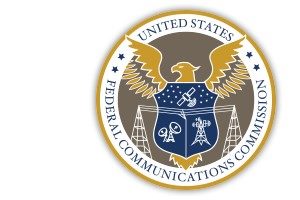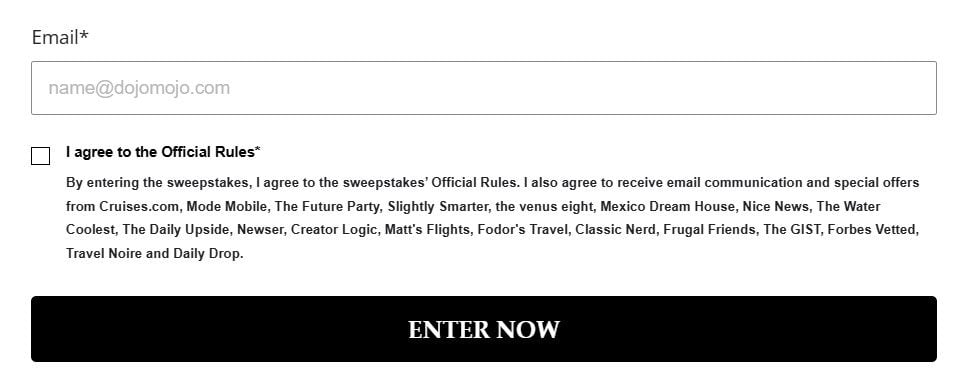The Gist
- Stricter consent requirements. As of January, businesses must obtain explicit, individualized consent before sending telemarketing robocalls or texts.
- Revoking consent made easier. Starting April 11, 2025, consumers can revoke consent through any reasonable method, and businesses must honor opt-out requests within ten days.
- End of the lead generator loophole. Marketers can no longer rely on third-party lead aggregators for broad consent—direct consumer approval is now required.
- Significant penalties for violations. Non-compliance with TCPA rules could lead to fines of up to $1,500 per unsolicited call or text.
- Compliance as a competitive advantage. Businesses that prioritize consumer trust and transparent communication can turn compliance into a strategic benefit.
Significant amendments to the Telephone Consumer Protection Act (TCPA) have taken effect, introducing stricter consent and revocation requirements for marketers for telephone marketing and text messages.
As of January, the Federal Communications Commission (FCC) mandated that businesses obtain explicit, individualized consent from consumers before sending telemarketing robocalls or texts, effectively closing the "lead generator loophole."
Additionally, as of April 11, 2025, consumers will have the right to revoke their consent through any reasonable method, and marketers must honor these requests within 10 business days. These changes require businesses to promptly review and update their marketing practices to ensure compliance and maintain consumer trust.

Table of Contents
- Understanding the Telephone Consumer Protection Act (TCPA)
- Key Changes in 2025 for the Telephone Consumer Protection Act
- Enforcement and Penalties Telephone Consumer Protection Act
- Moving Forward With TCPA Compliance
- Core Questions Around TCPA Compliance in 2025
Understanding the Telephone Consumer Protection Act (TCPA)
The Telephone Consumer Protection Act (TCPA), enacted in 1991, was designed to protect consumers from unwanted telemarketing calls, prerecorded messages and auto-dialed (robocall) communications. Initially introduced to curb intrusive marketing practices, such as unsolicited robocalls and faxes, the TCPA has evolved over the years to address emerging technologies and changing consumer expectations. Key provisions of the law include requiring businesses to obtain prior express consent before making marketing calls or sending text messages, honoring the National Do Not Call Registry and imposing strict penalties for non-compliance.
Over the past three decades, enforcement of the TCPA has been strict, with businesses facing substantial fines and legal challenges for violations. High-profile lawsuits have underscored the importance of maintaining compliance, as regulatory agencies such as the FCC and the Federal Trade Commission (FTC) continue to prioritize consumer protection.
The 2025 amendments to the TCPA introduce significant changes that directly impact marketers, particularly those relying on lead generation and third-party data sources. The most notable revisions include closing the aforementioned lead generator loophole, which previously allowed businesses to collect broad-based consent through online forms and share it with multiple marketers.
Now, businesses must obtain explicit, one-to-one consent from consumers before engaging in marketing outreach. Additionally, the updated rules establish a 10-day window for honoring consent revocation, ensuring that consumers have greater control over their interactions with businesses.
Related Article: Consumer Data Privacy: Win Trust With Consent-Based Marketing
Key Changes in 2025 for the Telephone Consumer Protection Act
The changes to the TCPA introduce significant new compliance obligations for businesses engaged in telemarketing, fundamentally reshaping how they interact with consumers. These amendments primarily focus on enhancing consumer control over their communication preferences, with stricter consent requirements and clearer pathways for revoking consent. Businesses will need to reassess their lead generation and outreach strategies to comply with the new rules or risk facing severe penalties.
Develop Customer-Centric Consent Mechanisms
Rick Ruth, director of Carrier Relations & Regulatory at CallTrackingMetrics, a call analytics and marketing attribution solutions provider, believes that the closure of the lead generator loophole marks a shift from mass marketing to precision engagement. According to Ruth, businesses must now “develop consent mechanisms that are not just compliant but customer-centric.” Ruth suggested that the new regulatory environment presents an opportunity for businesses to build deeper, more trusted customer relationships by focusing on transparent, individualized consent and robust tracking system. He advises businesses to rethink their lead capture processes by implementing clearer disclosures about how consumer data will be used and who will be contacting them.
Marketers Must Obtain Specific 1:1 Consent
One of the most impactful changes took effect on Jan. 27: the requirement for explicit, individualized consent before businesses can contact consumers with telemarketing robocalls or texts. Under the new rule, businesses must obtain affirmative, informed consent from each consumer, specifying the exact nature and scope of communication.
General or blanket agreements that allow broad outreach will no longer be acceptable, ensuring that consumers have greater control over who contacts them and for what purpose. This forces marketers to adopt more personalized, permission-based campaigns that prioritize quality over quantity, focusing on consumers who have actively opted in.

One Consent, Multiple Marketing Approaches: It's Over
Additionally, the FCC's elimination of the lead generator loophole means that third-party lead aggregators can no longer obtain a single consent from consumers and distribute it to multiple businesses, as shown above in a sweepstakes consent form. In the past, consumers who provided their contact information for one service could be inundated with calls and messages from numerous unrelated businesses.
Under the new rule, businesses must obtain direct consent from individuals, significantly altering how marketers acquire leads and interact with potential customers. Businesses will need to refine their lead acquisition processes to ensure compliance, using clear and transparent language in opt-in agreements and improving data management practices to avoid compliance risks.
This may require updating online opt-in forms, integrating real-time consent tracking tools and using more robust customer data management systems to align with consumer preferences and legal requirements. Ensuring compliance will also require ongoing audits of existing databases to remove records lacking proper consent.
Opting Out of Marketing: More Power in Consumer's Hands
In addition to tightening consent requirements, as of April 11, 2025, the updated TCPA introduces expanded consumer rights to revoke consent through any "reasonable" method. Consumers will no longer be confined to specific opt-out channels dictated by businesses. Instead, they can withdraw their consent through various methods such as text messages, emails, customer service requests, or even verbal conversations during interactions. Businesses will need to streamline their opt-out processes and ensure prompt handling to avoid potential legal and financial penalties.
Related Article: Building a Trust-First Brand: Transparency and Consent in Marketing
Enforcement and Penalties Telephone Consumer Protection Act
With the stricter TCPA regulations, businesses must take proactive steps to ensure compliance and avoid substantial legal and financial risks. Adapting to these new requirements will involve updating consent practices, refining outreach strategies and investing in technology to facilitate compliance.
With the closure of the lead generator loophole, regulatory focus will shift toward scrutinizing lead generation practices more closely. The new requirement for explicit, individualized consent means that businesses can no longer rely on broad or ambiguous consent agreements collected by third-party aggregators. Regulators will likely examine how companies obtain, verify and store consent, ensuring that consumers are fully informed and agreeing to specific marketing communications.
Failing to comply with the revised TCPA regulations carries significant legal and financial risks. Under the new rules, statutory damages for violations can reach up to $1,500 per unsolicited call or message, making even minor infractions costly for businesses operating at scale. The heightened regulatory scrutiny also means that businesses must be prepared to respond quickly to compliance audits and consumer complaints, reinforcing the need for robust compliance frameworks.
Meeting TCPA compliance isn’t just about following regulations—it’s about creating a strategic advantage through better customer engagement. Ruth suggested that businesses approach compliance with a strategic mindset, viewing it as an opportunity rather than a challenge and outlined three core pillars for success:
- Transparent individual consent
- Logically connected communication
- Robust tracking systems
"The ultimate goal isn't just regulatory compliance—it's creating communication that respects consumer autonomy,” explained Ruth.
Moving Forward With TCPA Compliance
The 2025 TCPA amendments present both challenges and opportunities for marketers, requiring businesses to adopt more transparent, consumer-friendly practices while ensuring strict adherence to evolving compliance standards.
By prioritizing explicit consent, streamlining opt-out processes and leveraging technology to manage compliance efficiently, businesses can turn these regulatory changes into an opportunity to build stronger, trust-based relationships with their audiences.
Core Questions Around TCPA Compliance in 2025
Editor's note: Here are some key questions around TCPA compliance in 2025:
What are the key changes to the TCPA in 2025?
The latest amendments introduce stricter consent requirements, eliminating the lead generator loophole that allowed broad-based permissions. Businesses must now secure direct, explicit consent before making telemarketing calls or sending texts. Additionally, consumers can revoke their consent through any reasonable method, and businesses must comply within 10 days.
How does the closure of the lead generator loophole impact marketers?
Previously, businesses could rely on third-party lead aggregators for consumer consent, but now they must obtain permission directly. This shift forces marketers to refine their lead acquisition processes, ensure transparent opt-in disclosures and maintain accurate consent records.
What are the penalties for TCPA violations?
Companies that fail to comply with the updated TCPA rules face statutory fines of up to $1,500 per unauthorized call or text. Additionally, stricter regulatory oversight increases the risk of lawsuits and enforcement actions.
How can businesses ensure TCPA compliance moving forward?
Organizations should update their marketing consent processes, implement real-time consent tracking tools and streamline opt-out mechanisms. Investing in customer data management solutions and training teams on compliance best practices will also help mitigate risks.
